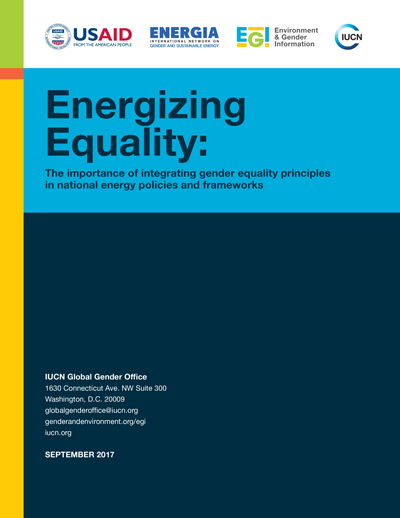Speeches Shim
The Importance of Integrating Gender Equality Principles in National Energy Policies and Frameworks
This assessment aims to identify and understand the degree to which gender considerations have been addressed in energy policies, plans and strategies worldwide.
Ensuring universal access to sustainable forms of energy is a key global development goal and is essential to improving the lives and livelihoods of women and men around the world. Energy enhances the well-being of women and men through the production of goods, as well as through the provision of and access to services, such as those related to water, health, education and communications. Gender roles—the sociocultural expectations, behaviors, responsibilities and activities that a society constructs—determine women’s and men’s roles and relationships as energy providers and users, as well as their participation in the energy labor market and in decision-making processes.
To understand the extent to which gender is being mainstreamed in energy policies at national levels, the International Union for Conservation of Nature’s (IUCN) Global Gender Office (GGO), in collaboration with ENERGIA, the International Network on Gender and Sustainable Energy, conducted an assessment of 192 energy policies, plans or strategies—herein commonly referred to as “frameworks”—from 137 developed and developing countries. The assessment was developed under the Gender Equality for Climate Change Opportunities (GECCO) initiative, a five-year collaboration between IUCN and USAID that aims to leverage advancements in women’s empowerment and gender equality through, and for, the benefit of climate change and development outcomes.
Findings offer insights into the ways in which governments are recognizing gender considerations in the context of their energy policymaking and planning and trends with respect to key cross-cutting gender issues and regional comparisons.


Comment
Make a general inquiry or suggest an improvement.